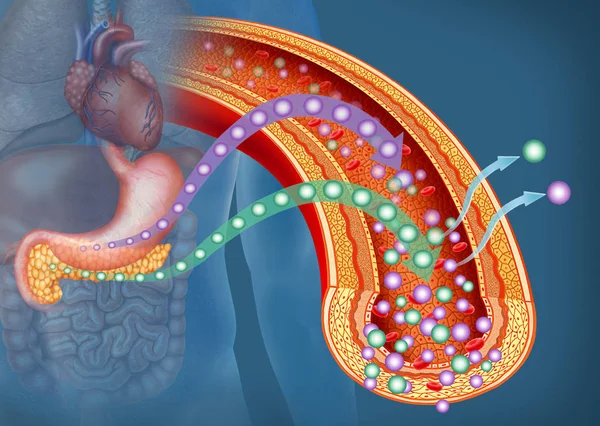Hundreds of Genetic Markers Linked to Insulin Resistance – A groundbreaking study has identified hundreds of genetic markers linked to insulin resistance. Insulin resistance is a complex metabolic trait characterized by a diminished cellular response to insulin, leading to dyslipidemia and higher circulating levels of insulin and glucose.
Large-scale genome-wide association studies have helped advance the identification of common genetic variants associated with insulin resistance, and more recently, exome sequencing has allowed the identification of rare variants associated with its pathogenesis.
The study used triglyceride (TG):high-density lipoprotein-cholesterol (HDL-C) ratio as a highly accurate indicator of insulin resistance.
Researchers analyzed data from over 400,000 individuals in the UK Biobank, significantly expanding the scope of previous studies.The team employed cutting-edge methods to identify and validate genetic markers associated with insulin resistance.
These genetic markers, including single nucleotide polymorphisms (SNPs), act as potential identifiers of insulin resistance and may further enhance the optimization of treatment for related conditions such as type 2 diabetes mellitus and coronary artery disease.
The INSR gene has been identified as a key genetic factor in type A insulin resistance syndrome, a related inherited severe insulin resistance syndrome
Key findings
- Genome-wide association study (GWAS): Researchers analyzed triglyceride (TG):high-density lipoprotein-cholesterol (HDL-C) ratios in over 400,000 individuals to identify genetic variations linked to insulin resistance.
- 369 genetic loci: The study identified 369 independent single-nucleotide polymorphisms (SNPs) associated with insulin resistance, with 318 being previously unreported.
- Loci linked to metabolism: These SNPs are clustered in genes involved in insulin signaling, protein metabolism, and the function of fat cells (adipocytes), providing insights into the mechanisms of insulin resistance.
- Polygenic risk scores: Combining these high-confidence loci, researchers developed scores that predict the risk of various metabolic diseases, including hyperglycemia, diabetes, and hypertension.
- Sex-specific effects: Notably, 31 loci showed differences in their effects between men and women, highlighting the role of sex hormones in metabolic health.
- The study also confirmed previous findings on 114 known insulin resistance-associated variants.
- Certain variants showed sex-specific effects, suggesting potential differences in metabolic risk between men and women.
- The researchers identified liver-related genes and mutations associated with fat retention and increased insulin resistance.
What are the symptoms of insulin resistance?
Insulin resistance usually does not cause any symptoms, and it is often detected during routine blood work or annual health exams.
Some signs of insulin resistance that your doctor may look for include a waistline over 40 inches in men and 35 inches in women, skin tags or patches of dark velvety skin called acanthosis nigricans, a blood pressure reading of 130 over 80 or higher, a fasting glucose level equal or above 100 milligrams per deciliter, or a blood sugar level equal or above 140 milligrams per deciliter two hours after a glucose load.
Other conditions that are associated with insulin resistance include obstructive sleep apnea, fatty liver disease, polycystic ovarian syndrome (PCOS), Cushing’s syndrome, and lipodystrophy syndromes.
However, these conditions may not always be present in individuals with insulin resistance.
Study source
ALSO READ: Genetics and Low Socio-Economic Status May Lead to Higher BMI, Study Finds









